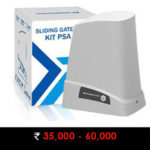Q 1. What is tensile roofing?
A. Tensile roofing, or tensile membrane roofing, is a modern construction technique using lightweight, flexible fabric membranes supported by a structural framework. High-performance materials like PVC, PTFE, or ETFE are stretched and tensioned to create strong, durable roofing structures. These membranes withstand various weather conditions, making them practical for many applications. They also offer aesthetic appeal, as they can be molded into unique, eye-catching shapes that enhance architectural beauty. Additionally, tensile roofing systems provide excellent durability and longevity, being resistant to UV radiation, weathering, and chemical degradation, ensuring a long service life with minimal maintenance.
Q 2. What materials are commonly used in tensile roofing?
A. Common materials used in tensile roofing include:
- Polyvinyl Chloride (PVC): PVC membranes are popular for their durability, flexibility, and resistance to chemicals and UV radiation. They are often used in lightweight tensile structures.
- Polyester Fabric: Polyester fabrics are commonly used in tensile roofing service due to their high tensile strength, tear resistance, and UV stability. They can be coated with PVC or other materials for added durability.
- Ethylene Tetrafluoroethylene (ETFE): ETFE is a transparent polymer that offers excellent light transmission, durability, and self-cleaning properties. It’s often used in architectural projects for its aesthetic appeal.
- Polyethylene (PE): PE membranes are lightweight, flexible, and cost-effective. They are suitable for temporary tensile structures or where budget constraints are a concern.
- PTFE (Polytetrafluoroethylene) Coated Fiberglass: PTFE-coated fiberglass membranes provide high tensile strength, durability, and resistance to extreme weather conditions. They are commonly used in permanent tensile roofing systems.
When choosing a company for these services, opt for one with extensive experience. A trusted tensile roofing service in Trivandrum, Kerala can ensure better service, detect issues early to prevent costly repairs, and provide valuable tips on roofing maintenance.
Q 3. What are the common applications of tensile roofing?
A. Tensile roofing is super versatile and used in many ways. It’s great for sports stadiums because it covers big seating areas without blocking views, keeping people dry while still feeling open. Exhibition halls like it because it’s easy to set up and take down for events, giving lots of space without obstructions. Airports use it in terminals to make big, bright areas that passengers love. In offices, it adds a cool look to atriums and outdoor spots while giving shade and cover. Parks and plazas use it for shady spots, playgrounds, and picnics, making things look nice and work well. It’s also good for walkways, entrances, and atriums in public buildings, making things comfy and safe while looking cool and letting in light. Basically, it’s a top pick for modern buildings because it does a bit of everything—looks good, works well, and helps the environment too!
Q 4. Where to use a tensile fabric structure?
A. Tensile fabric structures can be used in various ways to enhance both traditional and modern buildings. Here are some common applications:
- Showpiece Element: These structures can stand out as a unique feature, making urban focal points and local landmarks more attractive.
- Membrane Canopies: Ideal for creating wide, column-free areas, these can span unsupported lengths of up to 150 feet. With steel cable nets, they can cover twice that distance, and air structures can span thousands of feet without any columns.
- Temporary Buildings: Perfect for temporary setups like schools, education centers, or traveling exhibits.
- Modular Buildings: Our metal-framed tensioned structures are an affordable option for prefab modular buildings.
- Lightweight Additions: These structures are excellent as canopies, skylights, sheltered walkways, shaded areas, or atrium roofing, adding functionality and style to existing buildings.
Additionally, tensile fabric structures in Trivandrum are good for the environment too because they’re light and can be recycled. This makes them a sustainable option for building design.
Q 5. How is tensile roofing installed?
A. Installing tensile roofing is a step-by-step process that involves a few important stages. First, the design and making of the membrane and support framework happen with a lot of care, often done in special places to make sure everything is just right. Then, these parts are brought to the place where they’ll be installed, and the assembly begins. The support structure, made from strong materials like steel or aluminum, is put together very carefully to make sure it’s strong and sturdy. After that, the prefabricated membrane is attached to this framework with a lot of precision and skill. Then, the membrane is stretched and secured tightly to get the right shape, strength, and stability. This careful process makes sure that tensile roofing not only works well but also looks amazing, blending style and function perfectly. If you want to install tensile roofing, please reach out to us because we’re the best tensile roofing installers in Trivandrum.
Q 6: What are the benefits of tensile structures?
A. Tensile structures offer numerous benefits, including:
- Unlimited Design Flexibility: Engineers and architects can create unique and imaginative spaces with the lightweight and versatile materials of tensile structures, enabling custom-built designs and iconic structures.
- Solar Properties: Tensile structures reduce heat and keep areas cool, especially in public places, thanks to their multi-layer design.
- Translucency: The translucent nature of tensile structures allows ample natural light during the day and can be enhanced with artificial lighting at night.
- Quicker Installation: These structures can be installed quickly and cost-effectively, making them a viable alternative to traditional mortar structures for semi-permanent to permanent installations.
- Cost-Effective: The lightweight membrane of tensile structures allows for column-free spaces and requires less steel support, reducing overall project costs.
These benefits make tensile structures a versatile and practical choice for a wide range of applications.
Q 7. How does tensile roofing contribute to energy efficiency?
A. Tensile roofing helps save energy in big ways. One way is by letting natural light in really well, which brightens up the inside of buildings without needing as much artificial lighting. This not only makes spaces nicer but also cuts down on using electricity for lights during the day, saving a lot of energy and money. Plus, the materials in tensile roofs, like special fabrics, are great at keeping buildings at the right temperature. They stop too much heat from getting in during hot weather and keep warmth inside during colder times, which means less need for heating and cooling systems. This combo of using natural light smartly and keeping buildings comfy without using too much energy shows how much tensile roofing can help make buildings more energy-efficient and eco-friendly.
Choosing the perfect tensile roofing solution is really important to make sure it lasts long, looks great, and works well. Things like the quality of the materials, how well it’s designed, how it’s installed, and how it performs over time should all be considered when making your choice. At Control & Schematics, we’re a top choice because we have a lot of experience, a great reputation, industry certifications, and happy customers.
With so many options out there for tensile roofing, it can be overwhelming. One of our guides on Tensile Roofing covers everything you need to know about these roofing systems, so you can feel confident when making your decision.
Don’t settle for roofing that might not be safe or sturdy enough. Get in touch with Control & Schematics, a top tensile roofing service in Trivandrum, for expert help. Schedule a consultation call—we’re experts at meeting all kinds of roofing needs with accuracy and reliability.








